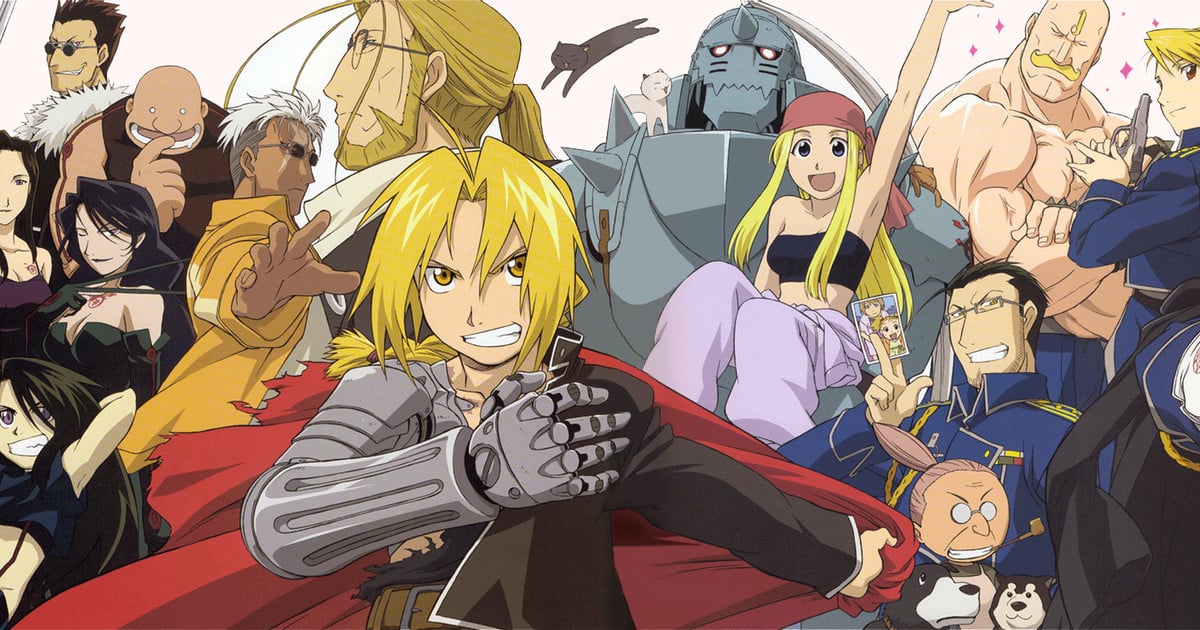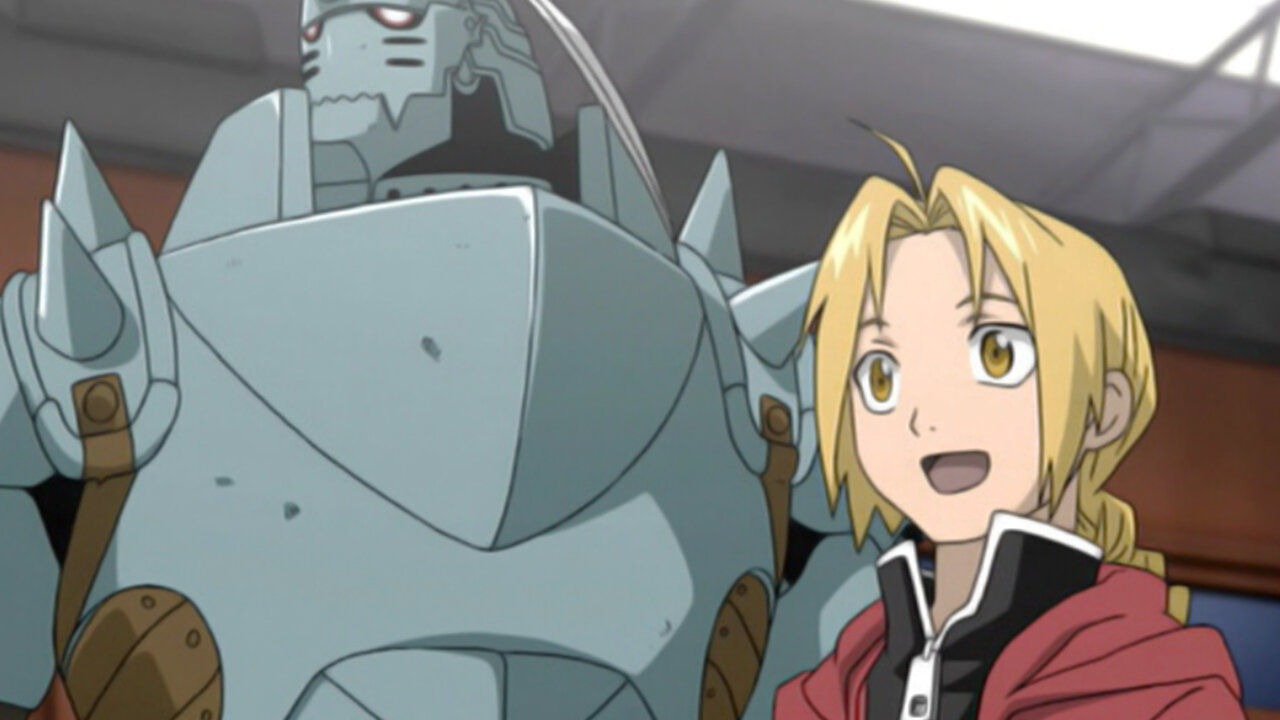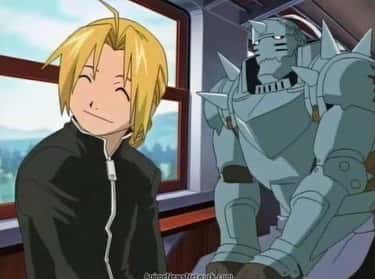
[ad_1]
(The following piece contains spoilers. YOU HAVE BEEN WARNED!)
When most people think about the Fullmetal Alchemist franchise, they usually think about Fullmetal Alchemist Brotherhood, which is one of the most famous anime in existence. What they usually overlook, sadly, is that Brotherhood has an older brother (no pun intended) which is simply titled Fullmetal Alchemist, the first adaptation of Hiromu Arakawa’s manga of the same name. Even though the two series are similar to each other at the onset, they eventually diverge after a certain point due to the fact that the manga was not finished at the time. Nevertheless, the first Fullmetal Alchemist is no less important to the lore of the story as a whole, and it is definitely recommended to watch both anime in order to have the full experience (for a bonus, Arakawa herself personally gave the go-ahead for the direction this adaptation was going in, so you cannot say that it’s a bastardization). Here I will go into detail as to why this underrated classic is just as important as its more well-known counterpart.
The soundtrack
I won’t go into too much detail here, but the OST for the original FMA is a masterpiece. It knows exactly where to hit you, whether you’re feeling happy, sad, or anywhere in between. Its more emotional pieces tend to be inspirational and thought-provoking. Just try not to tear up after listening to “Brothers”, “Mourning”, “Homunculus/Transient Life”, or “Emptiness”. I dare you. Especially “Brothers”, which perfectly encapsulates the emotional hardships of the Elric brothers and likely would not work in Brotherhood, which is far more optimistic in tone.
The Homunculi are fleshed out more in the original FMA than they are in Brotherhood

In Brotherhood, the Homunculi (a group of human like creatures created through alchemy) are simply alchemical extensions of the soul of the main villain, simply named Father. They embody one aspect of Father’s personality, and as such, with the exception of Greed, really do not give the viewer much to be attached to. In the original, however, many of the Homunculi have attachments to the cast of the series, and we get to learn more about them and their past lives in detail. For example, Lust was the fiancée of Scar’s older brother, who gave up his life trying to help him; the 2003 version of Sloth turns out to be the resurrected form of Trisha Elric; the 2003 version of Wrath is Izumi Curtis’s dead son; and Envy is revealed to be the older half-brother of Ed and Al. Wrath and Lust in particular stand out in particular and they both long to have maternal love and humanity, respectfully, making them more relatable to people who’ve always wanted things they could never hope to have. A constant theme within the original FMA is that playing God has dire consequences, which is fitting given that the Homunculi in this incarnation are products of past human transmutations, which are regarded as taboo in the FMA universe.
The viewer is more attached to Maes Hughes and Nina Tucker before they die

Another factor that edges out the original FMA over Brotherhood is the fact that the viewer spends more time two fan favorites, Nina Tucker and Maes Hughes, before they meet their respective ends. For the former, the viewer spends time with her two episodes before she is turned against her will into a chimera by her own father in the original, which was compressed into a single episode in Brotherhood. As for Maes Hughes, while both versions of his death are far from lackluster, the original packs more of a punch to the gut because the viewer actually spends more time with Hughes before he dies. Not to mention that in the original, Ed reacts to Hughes’ death exactly as you would expect him to (to the point that both Winry and Sheska have to restrain him).
The drama is better and the tone is more mature

Filmmaker Joss Whedon once said, “Make it dark, make it grim, make it tough, but then, for the love of God, tell a joke.” There’s nothing wrong with having a dark and gritty atmosphere, as long as there is a little comedy now and then to lighten the mood. And a series like Fullmetal Alchemist, comedy is definitely needed. However, when it comes to comedy, Brotherhood juxtaposes serious scenes with out-of-nowhere wacky jokes, whereas the original does this sparingly, allowing moments of bleakness to linger. As such, the original comes off as more of a drama with a mature atmosphere, while Brotherhood comes as off as your run-of-the-mill standard shonen.
Side characters in the manga/Brotherhood get more of a chance to shine in the original

Something that really separates the first Fullmetal Alchemist from Brotherhood is that in the original, characters that make small appearances and then are never seen again in the manga stick around for longer in the 2003 version. Chief among them are Rose Thomas, Sheska, and Shou Tucker, all of whom show up for minor arcs near the very beginning of the story. Rose and Tucker in particular have more focus as they play major roles later in the story (Rose becomes involved in Dante’s final plot, and Tucker’s obsession with bringing Nina back to life indirectly leads to the Elrics confronting Trisha/Sloth). As for Sheska, while she disappears a third of the way through the manga, she and Winry develop a dynamic, taking the plot in a new direction, whereas they don’t really meet in the manga.
The series explores the brothers’ dynamic more

At the end of the day, both FMA anime are about the Elric brothers and their journey to restore their bodies. Both series take time to explore the dynamics of the brothers; however, the original arguably does this better because they actually take time to have characters ruminate on current events affecting them. Case in point, in both cases, Al has a crisis of identity after Barry the Chopper tries to get him to believe that he is a fake made by Ed. However, both series approach this differently. In Brotherhood, this scenario is resolved almost immediately as it begins after Winry tells Al the truth. However, in the original, Al’s dilemma over whether his memories are real spans the course of several episodes, and it is only after she gets caught up in trying to rescue some Ishvalans that Ed reveals what he was really trying to hide from Al. This is effective because it allows the drama to last longer.
The pacing is better in the original

There is no doubt about it: The pacing of the original was better and more consistent than it was in Brotherhood. For the first couple of episodes in Brotherhood, the story just rushes through to get to the parts that haven’t been adapted by the manga, and as a result, by the time it reaches the unadapted content, it can be a bit jarring. This is because Brotherhood assumes that the viewer has already seen the original when there could be viewers like myself who saw Brotherhood before the original. As a result, key moments in the early parts of the original don’t carry the same weight that they do in Brotherhood. In other words, the 2003 show is a standalone show, while Brotherhood comes off as “for the fans only”.
The original handles its characters better than the original
Another selling point on the original FMA is that it handles the characters better it has better than Brotherhood. Having a large cast often requires the narrative to find a way to juggle them without leaving any of them out. This is something that the original FMA manages to do quite well, seeing how it never received the complete cast of characters that Brotherhood. This especially stands out considering that the early episodes of Brotherhood were erratically fast-paced.
The consequences of Ed’s actions last longer and have more effect

Yet another thing that separates the original FMA from Brotherhood is that Ed has to deal with the consequences of his actions more often. For example, in both versions, Ed’s deposing of the corrupt Father Cornello, leads to Lior undergoing several riots. In Brotherhood, this happens for a relatively brief period of time, and in Lior’s final appearance in the story, it is in the process of rebuilding. In contrast, the original FMA depicts Lior being invaded, destroyed, and later turned into a Philosopher’s Stone (not to mention that Rose undergoes a traumatic event that temporarily renders her mute). Also, as mentioned above, Ed has to also deal with the fact that performing human transmutation resulted in the creation of the Homunculus Sloth (aka his mom). Ed’s struggles are the result of the writer focusing on current events, and more than once he has to make hard decisions (e.g. killing Greed without wanting to).
The drawbacks/flaws

Alas, not everything about the original Fullmetal Alchemist is wine and roses. There are several problems throughout the course of the story that are prevalent. The main villain of the story, Dante, isn’t exactly what I could call a good final boss. In fact, she and Ed never even fight at all during the series. Instead, we have an admittedly rather memorable fight between Ed and Envy, who is later revealed to be Ed’s half-brother from Hohenheim’s marriage with Dante many centuries ago, and Dante is disposed of by a crazed Gluttony rather anticlimactically.
Another thing that ground my gears during the series is that some characters were given less to do. For example, Riza Hawkeye, who is a major player in Brotherhood, is sidelined to be little more than a confidante for Roy Mustang. Dr. Marcoh also was killed off rather unceremoniously in the first part of the series and is never brought up again until the end of the series. Even the Homunculus Greed got hit with this, though as not as bad as the others, as he still proved significant to the plot despite not being as prominent.
A final issue I have with the series with the ending. Dear Lord, the ending. I absolutely hated the ending of the series. Not only are Ed and Al separated and stuck in different dimensions, but many characters either die (this version of Selim) or end up in hopeless situations with no hope of getting out (this version of Shou Tucker, who I admittedly have some sympathy for). It gets even worse at the end of the sequel movie, Conqueror of Shamballa, where Ed and Al end up in our world and have to stay there (here?) forever, leaving all of their friends behind. (I feel sorry for that version of Winry. Now who will she get to throw wrenches at?)
Final thoughts
So my final thoughts? You should check out the first Fullmetal Alchemist anime if you haven’t seen it already. It may not be completely faithful to the manga, but it is no less important to the lore of the franchise. On the other hand, if you are a fan of happy endings, I recommend you go with Brotherhood. In the end, however, this article not to argue which version of Fullmetal Alchemist is better; it is simply to point out that the original simply does not get the love it deserves. Both series have their merits and their flaws, and both deserve to coexist within the same franchise. I hope this article convinces you that the original is worth checking out and needs to get more love and respect than it currently.
[ad_2]





